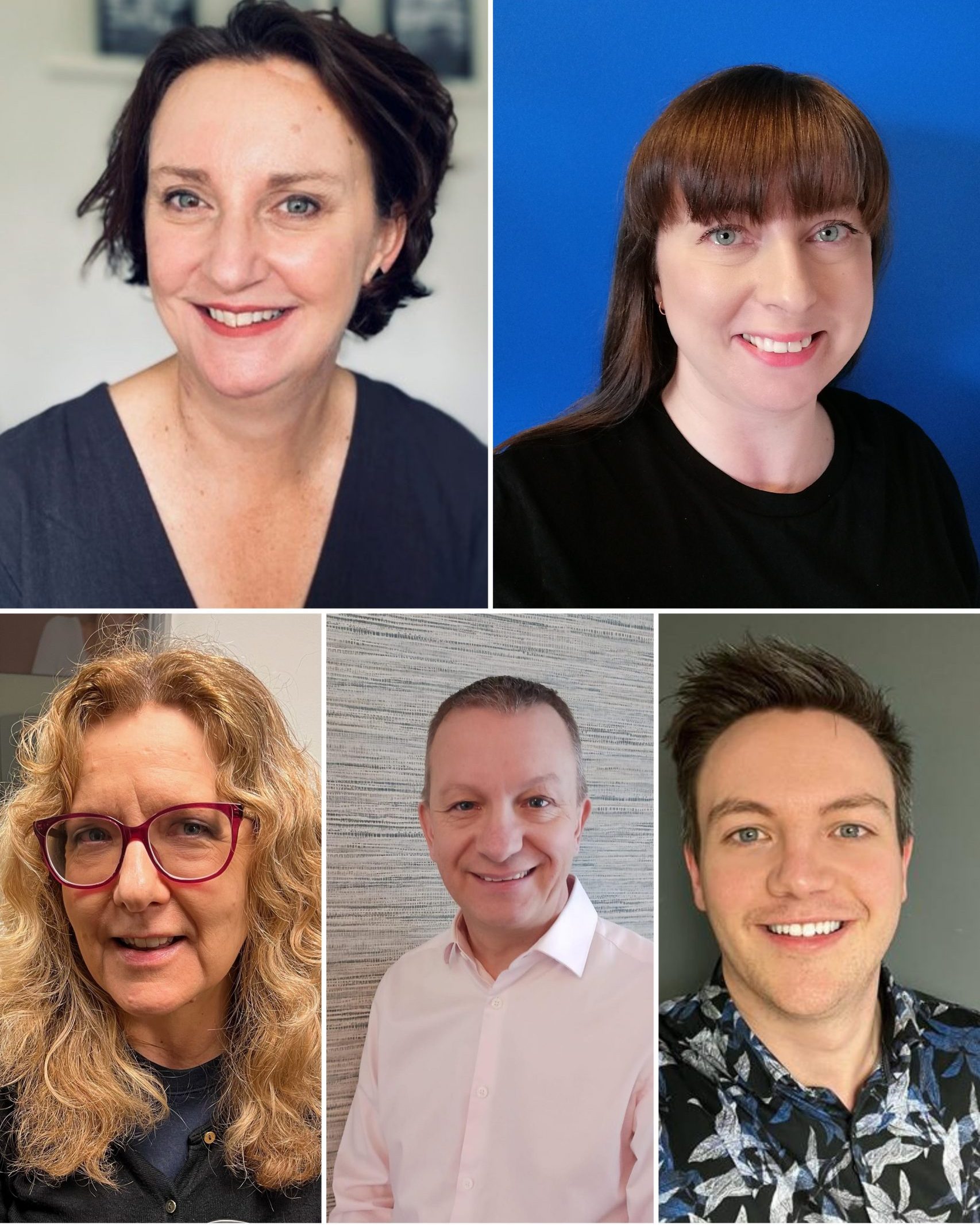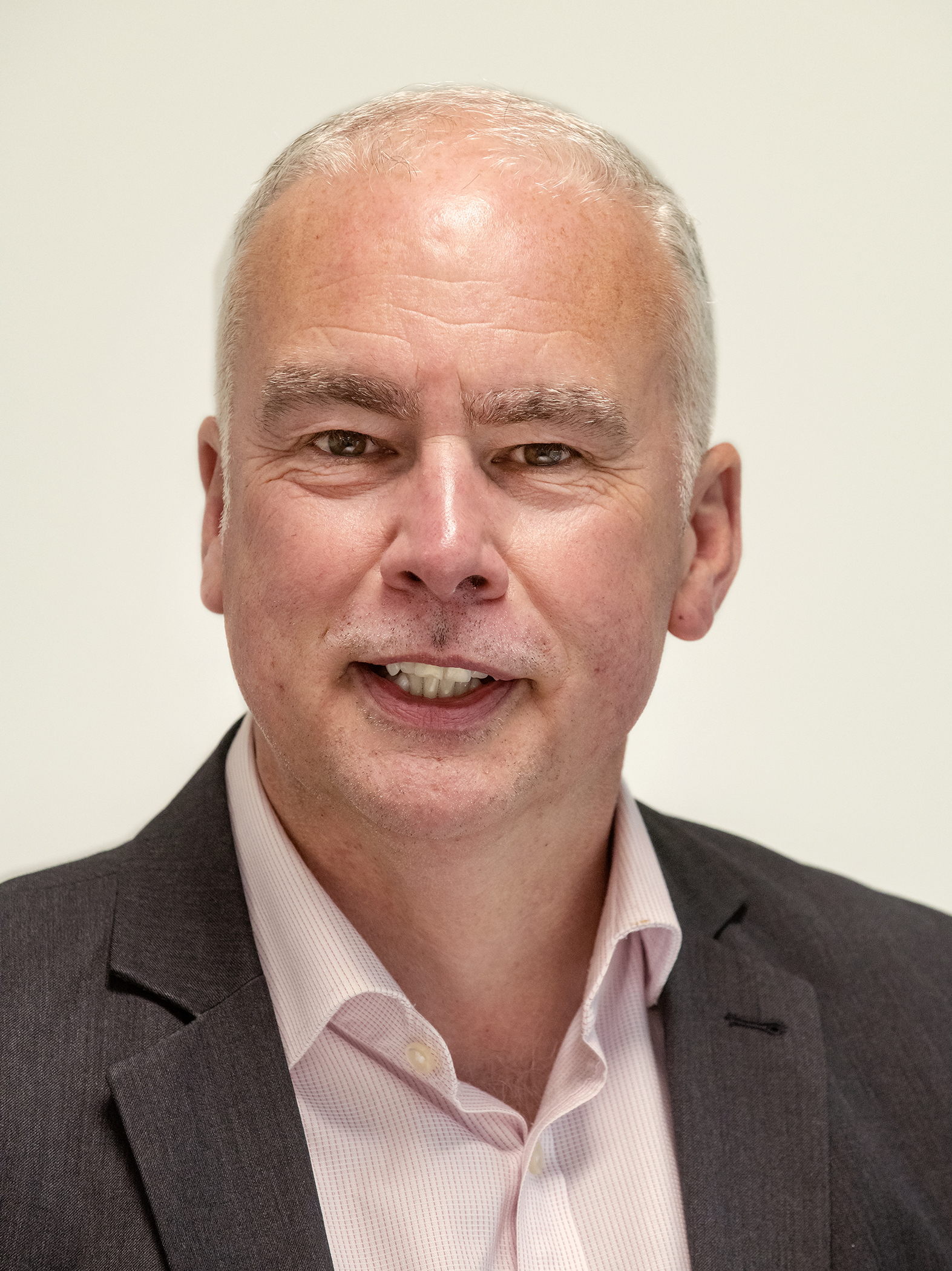ABDO regional leads
When Max Halford took on the role of clinical lead for ABDO, one of his key priorities was to relaunch the regional leads team. Why was this so important – and what is his vision for these roles going forwards?

Clockwise from top left: Millie Fellows, Amy Seaman, Steven Harding, Graeme Stevenson and Abi Crutcher
“Our region structure had been in place for a while and had some success at supporting members on a more local basis,” explains Max. “However, it was becoming apparent that we needed to look more towards a ‘five nations’ approach to have a real impact at ‘system level’ within the eye health services of these devolved NHS organisations.
“We also had regional leads who had grown in the role and now wanted to take on different responsibilities within the eyecare sector, so it seemed logical to review, reorganise and refresh our approach. Our original regional leads have done an amazing job in getting us to where we are now, and ABDO is grateful to them. Now we have a new team, well placed for the next stage of building a network of support for members across the UK.”
The new ABDO regional leads are: Millie Fellows (London and the South of England); Amy Seaman (Midlands and the North of England); Steven Harding (Northern Ireland, NI); Graeme Stevenson (Scotland); and Abi Crutcher (Wales).
In the first of a new series of articles, focused on regional activities and updates, we get to know the team and hear what’s happening in their region…
In the hot seat
Q: In your region, what stands out as the most significant obstacle or accomplishment for DOs?
Graeme: The biggest obstacle for DOs in Scotland is health board registration. Once we achieve this, huge opportunities will open up for DOs as part of delivering Scotland’s GOS contract.
Abi: I think the fact that with the new Welsh GOS contract, meaning DOs and CLOs can now get a CPD grant, is definitely a step in the right direction to our worth being recognised. There are now lots of opportunities for DOs to upskill, with more to come in the future.
Steven: Like Scotland, the most significant obstacle in Northern Ireland (NI) is being recognised by the health board and listed to be part of the CPD grant, and, by extension, further enhanced schemes. The biggest achievement I would say is how much more valued DOs are now by employers. There are more job vacancies than DOs available in NI. Hopefully, we will now see more practices putting employees through the distance learning course and training them up.
Amy: The variations in how DOs and CLOs are valued and utilised across the North of England is an accomplishment in some areas and an obstacle in others. Recognition should be standardised across the UK and the value of a DO promoted. At the moment, this is an obstacle.
Millie: An obstacle for me in the South of England is collecting relevant, live and current information of what is going on in all the localities at grass roots – allowing us to really understand the successes and challenges DOs face.
Q: In addition to your primary role as a DO, what other positions do you occupy that have contributed to the development of your skillset?
Graeme: I currently work in practice, which means I am acutely aware of the roles and challenges faced by our members on a daily basis. I am also an education visitor panel member for the General Optical Council (GOC). I help facilitate CPD for ABDO and other providers as well as being a visiting clinician at Glasgow Caledonian University. In the past I have also been chair of the Scottish Contact Lens Society.
Abi: I am an extended services contact lens optician (ESCLO), with a professional certificate in low vision, so my time in practice is very varied. In any one day, I could be dispensing, seeing a minor eye emergency, advising a patient with a visual impairment, and doing a contact lens assessment. In addition to my work in practice, I represent DOs on my regional optical committee and, through that, on the Welsh Optometric Committee (WOC). I also represent optometry on my local primary care cluster committee.
Steven: I no longer practise as a DO day-to-day as I’m field based. With my work though, I deliver CPD and training for practices and their teams. I also sit on the board of Optometry NI and help to further the whole optics profession in the region. I also lead discussions and negotiations with the health board here for enhanced fees and other matters.
Amy: In addition to working in practice, I am a member of Sheffield Local Optical Committee (LOC) and my local optometry forum. I am an ABDO examiner and facilitate CPD. Recently, I have also been appointed as a director of the Central Optical Fund. My varying roles provide me with opportunities to promote the DO profession to others, and keep in touch and up-to-date with planned developments within the optical sector.
Millie: I have recently diversified into varied roles within the optical sector; joining my LOC was the catalyst to more opportunities within the GOC and ABDO. The Local Optical Committee Support Unit (LOCSU) also funded my place on a leadership course which, alongside my qualification in people management, has helped me to bring a ‘people centred’ approach to all my roles.
Q: What specific goal do you hope to accomplish to further the advancement of the DO profession?
Graeme: Health board registration is the achievement upon which we can build and grow the role of the DO in Scotland.
Abi: I continue to bang the drum for DOs; my WOC colleagues are very familiar with my constant refrain of, “What about DOs?” I aim to make the optical profession in Wales aware of the amazing skillset of DOs, and the added value they can bring to a practice. Also, to make the general public aware of the importance of a well fitted pair of spectacles. Fashion is good, but good vision is better – and it’s perfectly possible to have both, so why settle for less.
Steven: I would like to see DOs listed and to lead the way with low vision services in NI.
Millie: I would love for more DOs to utilise the mentoring programmes we offer as part of their ABDO membership. Throughout my career, I have had the good fortune to work with some great mentors as well as mentor others myself. The process and relationships built are invaluable in developing careers and skills. The paying forward of those skills is the cornerstone to a pipeline of DOs who want to enhance and develop within the profession.
Amy: I would like all DOs to be fully aware of the opportunities that are available to them. Too often, we allow ourselves to be ‘put in a box’ – and the wording of some opportunities within the profession make us feel that we are not included, when this is not true.

ABDO clinical lead, Max Halford
Connecting with members
“Undoubtedly, there are common goals that run through all the nations we cover, each aligning with ABDO’s purpose as a professional body” says Max. “These include the advancement of the profession, promoting the different roles DOs can undertake, and supporting and representing our members. And at the heart of everything we do is the delivery of exemplary care for patients.
“Our regional leads team will focus initially on developing a structure to engage with national and local optical forums, and ensure we are well placed to engage with, and influence, opportunities for members going forwards. They are also now keen to engage with members to understand their successes and challenges in their region, so please get in touch by email so they can support you in your endeavours – and you in theirs,” Max concludes.
Get in contact with Max Halford by emailing mhalford@abdo.org.uk
Find contact details for the ABDO regional leads here.
This series of articles will appear in the print edition of Dispensing Optics and DO Online.